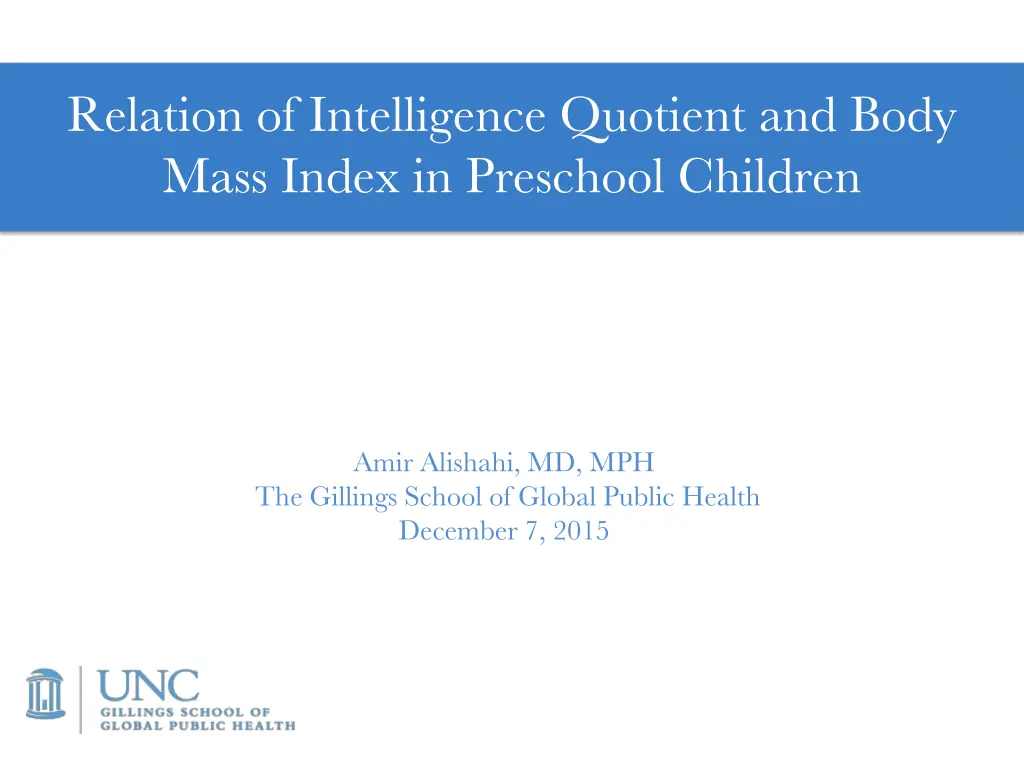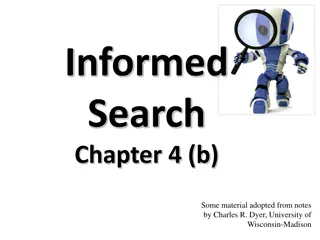
Relationship Between Intelligence Quotient and Body Mass Index in Preschool Children Study
Explore the correlation between intelligence quotient (IQ) and body mass index (BMI) in preschool children, shedding light on the impact of overweight and obesity on both physical and psychological aspects. The study delves into factors affecting IQ, BMI, and health disorders in children aged 6-7, providing valuable insights for public health and educational interventions.
Download Presentation

Please find below an Image/Link to download the presentation.
The content on the website is provided AS IS for your information and personal use only. It may not be sold, licensed, or shared on other websites without obtaining consent from the author. If you encounter any issues during the download, it is possible that the publisher has removed the file from their server.
You are allowed to download the files provided on this website for personal or commercial use, subject to the condition that they are used lawfully. All files are the property of their respective owners.
The content on the website is provided AS IS for your information and personal use only. It may not be sold, licensed, or shared on other websites without obtaining consent from the author.
E N D
Presentation Transcript
Relation of Intelligence Quotient and Body Mass Index in Preschool Children Amir Alishahi, MD, MPH The Gillings School of Global Public Health December 7, 2015
Presentation Outline Background Method Result Discussion Q & A
Overweight and obesity in children is a global problem. Physicial effects: Hypertension, Impaired glucose metabolism, Extra stress on weight-bearing joints, Liver disease and Asthma Psychological effects: lowering self- esteem, affecting relationships with peers and social problems. Background Method Result Discussion
Type: Cross-sectional community-based at national level in Iran Time: Between 25 April 2009 and 19 May 2013. Sampling method: 13 strata and multi- stage random cluster sampling from each strata Sample: 1352 preschool children aged 6 7 years old Discussion Background Method Result
Long-term medication use for any health disorder History of any kind of infectious or non-infectious hepatic disorder History of familial hyperlipidemia, endocrine disorders and Hypothyroidism Any physical disability or a neurological disorder or hearing loss Obesity secondary to genetic disorders Living with single parents or identical twins Any developmental neurologic or psychiatric alterations Children under special diets or history of autism Children who have been examined for IQ in the past 6 months Children because of their or their parents refusal to participate in the study Mental retardation, any chronic medical problem such as asthma anemia Discussion Background Method Result
Health system structure Age, gender, history of any previous education, household size and area of residence, age and educational level of parents, type of childbirth, type of infant feeding and minimum household income, height and weight of children were documented The BMI cutoff points used were those from the Centers for Disease Control and Prevention (CDC). Wechsler Intelligence Scale for Children- Fourth Edition, Full-Scale IQ Discussion Background Method Result
A total of 1151 children participated in the study 597 (51.9%) were boys and 554 (48.1%) were girls. The mean of IQ was 99.46 2.12 with the range 71 131. Background Method Result Discussion
Background Method Result Discussion
Background Method Result Discussion
Background Method Result Discussion
A lower IQ score is associated with abnormal BMI A higher IQ score is associated with maternal and paternal education. A higher IQ score is associated with cesarean section A higher IQ score is associated with breastfeeding A higher IQ score is associated with wealthier and smaller families A higher IQ score is associated with living bigger cities Background Method Result Discussion






















